Related Content
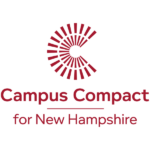
Events
Rural Conversations

Navigate: A Road Map for New Hampshire S
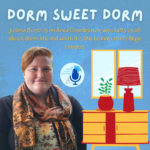
Podcasts
Dorm Sweet Dorm
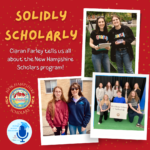
Podcasts
Solidly Scholarly
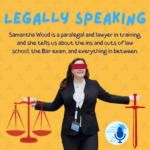
Podcasts
Legally Speaking
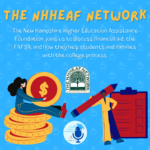
Podcasts
The NHHEAF Network

Podcasts
Hairs to You

Podcasts
Admissions Advice

Podcasts
United We Serve

Podcasts
Talking TRIO
Engaging Community Partners as Co-Educators, Comrades, and Co-Conspirators
It is commonly accepted in the community engagement field that community partners function as co-educators of students. However, it is difficult to put this idea into practice when creating and implementing a course. In this presentation, you’ll hear from pairs of faculty and community partners about how their co-educator partnerships work in practice. You’ll also hear their candid insights about the opportunities and challenges inherent in this kind of relationship. This resource is available to Campus Compact members only. Learn how to get started with a compact.org user account to access the webinar. Watch the recording →
Workshop Recording: Creating Space for Democracy: Methods for Promoting Civil Discourse in Higher Education
This video recording of Campus Compact’s national workshop offers ideas and practices for promoting free spaces for civil discourse in classroom, student life, and community settings. How can educators use civil discourse to address increasing polarization and free speech controversies on campus? Drawing on lessons from Creating Space for Democracy (Stylus/Campus Compact/AAC&U), this workshop introduced various methods of dialogue and deliberation, including case study examples from leading dialogue practitioners. Moderator: Nicholas Longo, Campus Compact Deliberative Dialogue Fellow, Professor in the Department of Global Studies & Faculty Fellow for Engaged Scholarship with the Center for Teaching Excellence, Providence College Panelists: Sara Mehltretter Drury, Vice…
Anti-Racist Community-Engaged Learning
Campus Compact has made available video recordings from a virtual symposium, “Anti-Racist Community-Engaged Learning: Principles, Practices, and Pedagogy.” Held in February 2022, the symposium explored topics such as principles of anti-racist pedagogy, voices from the field, and creating an anti-racist community of practice. The symposium was sponsored by Campus Compact, the Massachusetts Department of Higher Education, Salem State University, Worcester State University, Fitchburg State University, and the University of Massachusetts Amherst. View the recorded sessions.
Building Local Capacity
One of the biggest challenges for universities seeking to be effective community partners is to identify partners and help those partners increase their own economic development capacity. This Knowledge Hub from Campus Compact contains links to resources on best practices, and models for effective, sustainable partnerships.
Glossary of Campus Engagement Terms
Below you will find definitions to help understand and educate professionals interested in service-learning, civic engagement and the scholarship of engagement. What is Service-Learning? Service-learning means a method under which students learn and develop through thoughtfully organized service that: is conducted in and meets the needs of a community and is coordinated with an institution of higher education and with the community; helps foster civic responsibility; is integrated into and enhances the academic curriculum of the students enrolled; and includes structured time for students to reflect on the service experience. American Association for Higher Education (AAHE): Series on Service-Learning in…
Queen City Serves
The Queen City Students Serve initiative is in partnership with the following NH higher education institutions.Families in Transition-New Horizons Granite United Way Sleep In Heavenly Peace Hillsborough County Chapter Pass Along Project GEAR UP Manchester Big Brothers Big Sisters Friends of the Manchester Animal Shelter Boys and Girls Club of Manchester The Granite YMCA Aimee Kereage Amiee is the Director of Community Impact at the Granite United Way. She partners often with the Manchester community on a multitude of issues. Since the pandemic her efforts have focused on making sure that families and students in the Manchester community were fed…
Risk Management in Community Engagement
This knowledge hub provides resources and information for managing risk and ensuring safety in community-engaged learning experiences and campus-community partnerships.
Community Partnerships
One of a wide range of Knowledge Hubs from Campus Compact, Community Partnerships offers useful resources and readings to help campuses forge effective partnerships. Resources include suggested readings on campus-community partnerships and asset-based community development, sample Memorandums of Understanding (MOUs), and useful web resources.
Creating a Service Year on Campus
The incorporation of a year of service into the post-secondary education experience helps prepare students to complete their degrees, secure meaningful employment, and become lifelong engaged citizens. Service years in higher education have the power to attract students, enliven education, and put graduates on pathways to careers. This knowledge hub provides resources for campus stakeholders interested in supporting alumni of service year programs on their campus, creating a service year connected to academic credit, or providing opportunities for faculty and staff to support service initiatives. One of a wide range of knowledge hubs developed by Campus Compact, Creating a Service…
Building Interfaith Cooperation through Civic Engagement
Religious and ethical convictions are a driving force behind people’s motivation to serve others. Ignoring these convictions misses a valuable opportunity to connect values to action. As America continues to diversify, opportunities for conflict around religious difference abound. However, there is also ample opportunity for students to engage in cooperative and healthy ways by exploring the shared values between traditions–– specifically through service to their communities. This knowledge hub provides resources for civic engagement and service-learning professionals interested in fostering opportunities for students to engage their religious, spiritual, and secular values in their service work. One of ten knowledge hubs…
Applying STEM to Real-World Issues through Service-Learning
Students in the United States are often found to underperform academically in science, technology, engineering, and math (STEM). As a result, they are not choosing to pursue careers in STEM fields at a rate needed to meet expected demand in the labor market–thus creating a skills gap. One way to address the STEM skills gap is for higher education to work with K-12 schools to get children more interested in STEM fields by linking STEM learning to real-world issues. This approach can also help struggling students perform better in STEM areas. This will, in turn, create better-performing students who are…
Building K–12/Higher Education Partnerships
K–12 / higher education partnerships are perhaps the most pervasive form of community partnerships in higher education. In the early 1900s, for example, educational philosopher John Dewey created laboratory schools at the University of Chicago as a place for pre-service teachers to learn teaching by actually doing it. For many years, universities have placed pre-service teachers in classrooms across the United States. A call for increased university involvement grew out of the concerns raised by the A Nation at Risk report (National Commission on Excellence in Education, 1983) and the subsequent Holmes Group Report (1986), which specifically called attention to…
Building Deep and Sustainable Connections among Sport, Academics, and Community
Most colleges and universities believe athletics to be a critical part of the academic experience. Sport programs enhance the college’s reputation and teach student athletes important life lessons about perseverance, cooperation, and leadership that complement the academic mission. However, the significant demands of sport can isolate athletes from the larger student population and contribute to a disparaging stereotype of athletes as less engaged in the life of the university and in the community. The response of many colleges and universities is to develop separate service initiatives for athletes. However, these service programs tend to place more demands on the limited…
Dialogue Resources for Higher Education
Dialogue is a process in which groups come together to share experiences around issues that are often avoided or argued toward the goal of informed decision making. Dialogue involves mutual understanding, suspending judgment, and listening deeply, rather than seeking to win. Campuses engaged in dialogue use the tool to engage with diverse viewpoints in true civil discourse. A community that has a high level of dialogue skill creates enhanced experiences in co-curricular life, civic engagement, and curricular environments. Dialogue equips students, faculty, and staff with the skills to build shared understanding of challenges, to empathize with experiences very different from…
Aligning Institution to Community
Colleges and universities are anchor institutions in their communities. To adopt an anchor mission entails adopting a strategy to leverage institutional assets. Ways to leverage economic assets and revenues to promote local private-sector development include: Directing a greater percentage of purchasing power toward local and minority vendors based in the community. Hiring a greater percentage of the workforce locally. Providing workforce training for people needing assistance in the community. Incubating the development of new businesses, including social enterprise among nonprofits. Leveraging real estate development to promote local retail, employer-assisted housing, and community land trusts. Using pension and endowment funds to…
Creating, Running, and Sustaining Campus-Community Service-Learning Partnerships
Campus-community partnerships are an essential element in community service-learning. Partnerships are the structure for identifying community needs, developing appropriate student projects, fostering experiential education, carrying out required planning and logistics and sharing feedback on the process and results. Because of their importance, the elements of successful campus-community partnerships have gotten a lot of attention; however, less has been done to identify “best” or even “promising” practices that are used to create, run and sustain good partnerships. The purpose of this handbook is to record and share the voices of partnership practitioners on what they have done that has worked well…
Community Partner Toolkit
Developing innovative learning strategies and vehicles to enhance academic experiences is an ongoing challenge to higher education. The spectrum of student employment opportunities––Federal Work-Study, internships, volunteering, etc.–– are viewed as helpful tools in this regard as they address the needs of all parties in varying degrees of commitment and structure. The Federal Work-Study program offers the most structured framework to off campus agencies, organizations and companies interested in entering high-level, committed partnerships with educational institutions in order to access subsidized student employment. This Community Partner Toolkit is designed to introduce community partners to the basic tools needed to work with…
 -->
-->
